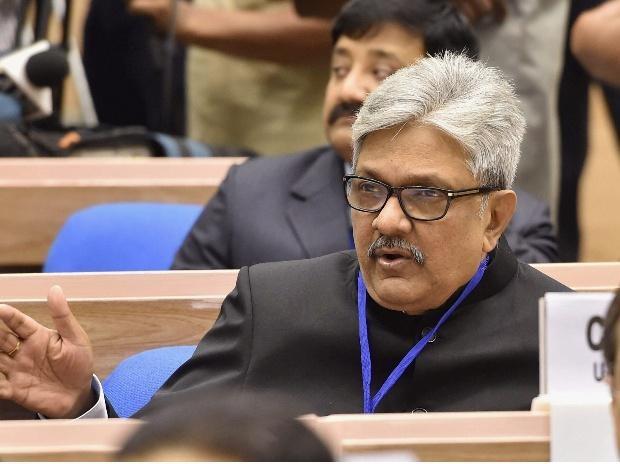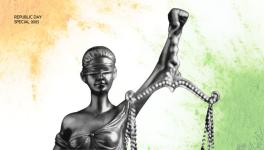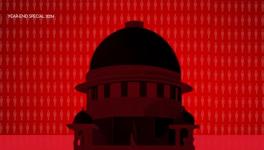The Government's Reasons For Returning Justice K. M. Joseph's Recommendation are Weak

The Supreme Court Bar Association (SCBA) has made clear its displeasure over Justice K. M. Joseph's recommendation being returned by the government. An urgent plea before a Bench presided over by CJI Dipak Misra was dismissed, with the CJI saying that there is nothing wrong with the government's decision and that the government's actions were well within their powers. The SCBA had convened an extraordinary meeting on a request signed by 100 advocates of the Supreme Court. Some of the prominent names were Indira Jaising and Arvind Datar. The letter which stated the reasons for returning Justice K. M. Joseph's recommendation listed three broad reasons for doing so; seniority, regional representation, and lack of SC/ST representation. These reasons are erroneous at best, and a blatant tampering with Judicial appointments at the worst.
Seniority as a basis for elevating a Judge to the Supreme Court is a basic norm that has been adhered to. However, the Third Judges case stated that seniority is not the sole criteria and that merit too, has a role to play in judicial appointments. The government had pointed out that Justice Joseph was number 42 in the scheme of seniority across the High Courts. However, the present government had approved the elevation of Justices Mohan Shantanagoudar, Navin Sinha, Deepak Gupta, S. K. Kaul, and Abdul Nazeer, all of whom were not the senior most at the time.
The criteria of regional representation is strange since this would mean that the Supreme Court ought to have a lot more Judges, at least 36 if one considers all the states and union territories, the current strength of the Court is 25 out of the sanctioned strength of 31. Maybe this new criteria would warrant that Justice Gogoi becomes the CJI after Justice Dipak Misra. The government also mentioned that the Kerala High Court has more than enough representation. However, so does the High Court of Bombay and the Delhi High Court.
The criteria that there should be more SC/ST representation in the higher judiciary is again strange to the extent that it was never earlier mentioned as a criterion. If social parity is a goal, then it should be stated before seeking recommendations. Stating it as a criterion after the recommendation has been submitted is simply bad in law and smacks of arbitrariness.
Return of KMJ nomination
Another issue that arises out of the government's decision to assent to one name and not the other is whether judicial recommendations to the executive for elevation and appointment can be severed. This, however, is not the first time the government has selectively assented to the Supreme Court's recommendations. In 2014, former Solicitor General of India, Gopal Subramanium's name was excluded from a composite list of four names. The then CJI, Justice R. M. Lodha expressed his disapproval of the government's actions. The other names included Justices A. K. Goel, Arun Mishra, and R. F. Nariman. Their swearing-in took place only after Gopal Subramanium withdrew his consent to be recommended.
At present, the opposition parties have all condemned this particular act of the government. As usual, it has turned into a mudslinging competition between the Congress and the BJP. The Congress alleges that the BJP is trying to fill the Court with Judges who will be favourable towards them – which is unfair to Justice Indu Malhotra. The BJP, on the other hand, has been reminding the Congress of the Emergency. This, of course, is ironic since the only other times the elevation of Judges of the Supreme Court has been tampered with in such a blatant manner was during Indira Gandhi's rule. On April 26, 1973, Justice A. N. Ray went on to become the Chief Justice of India, superseding Justice Hegde. The second time a tinkering occurred was in 1977, after the emergency. Justice Khanna was superseded by Justice Beg to become the CJI. Justice Khanna had authored the sole dissenting opinion in the infamous ADM Jabalpur case, where the Supreme Court had declared that the right to life and personal liberty under Article 21 could be suspended during an emergency.
In this context, the Congress-BJP mudslinging match is a clear case of the pot calling the kettle black. However, if the Supreme Court were to send back Justice Joseph's recommendation to the government, he would have to be appointed. On the other hand, there is no time frame prescribed for the government to act within. Thus, even if the collegium were to re-recommend his name, the government could simply execute a pocket-veto.
Get the latest reports & analysis with people's perspective on Protests, movements & deep analytical videos, discussions of the current affairs in your Telegram app. Subscribe to NewsClick's Telegram channel & get Real-Time updates on stories, as they get published on our website.
























